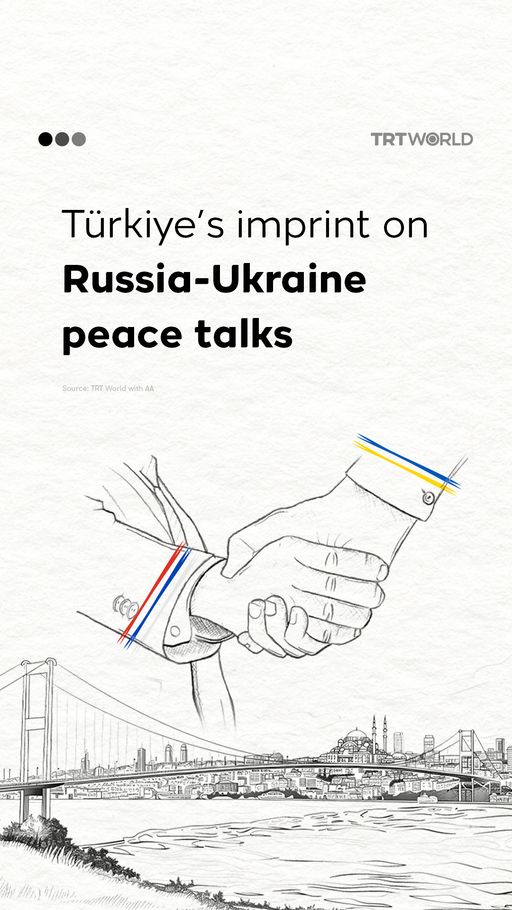In one of the most consequential weeks in recent memory, Turkish President Recep Tayyip Erdogan has emerged as a central actor in a flurry of diplomatic and strategic developments spanning Europe, the Middle East, and North Africa.
From progress in talks between Ukraine, Russia, and the US, to the disbanding of the PKK terrorist organisation, Türkiye has demonstrated not only its regional influence but also its growing role as a global power broker.
Ukraine–Russia–US peace talks in Istanbul
The most closely watched development of the week is the announcement that senior representatives from Ukraine, Russia, and the United States will meet in Istanbul to explore pathways to end the conflict in Ukraine.
While a ceasefire has not yet been declared, the decision to hold high-level negotiations in Türkiye underscores Ankara’s credibility as a neutral facilitator between East and West — a role it has cultivated since the early days of the war.
On Tuesday, Zelenskyy told reporters in Kiev, Ukraine's capital, that he will meet with Turkish President Recep Tayyip Erdogan on Thursday in Ankara, where they will both await the arrival of Russian President Vladimir Putin. If the Russian president decides to attend the meeting, the US officials announced that President Trump might also travel to Istanbul to take part in the peace talks..
On the same day, NATO Secretary-General Mark Rutte arrived in Türkiye, where he met with Turkish President Recep Tayyip Erdogan and Foreign Minister Hakan Fidan ahead of an informal meeting of NATO foreign ministers, scheduled to be held in Antalya from May 14 to 15.
Rutte’s visit centered on the Ukraine peace talks.

Get more news stories and insights from TRT Global in 45 languages. Covering global topics, politics, business, sports, and more.
PKK disbands after decades of terrorism
One of the most significant national security breakthroughs came on Monday with the announcement that the PKK terrorist organisation has officially disbanded and laid down its arms. This marks a historic turning point in Türkiye’s decades-long counterterrorism campaign.
The group’s collapse is widely attributed to Türkiye’s successful strategy combining military modernisation, expanded surveillance via domestically produced drones, and sustained economic and social investment in southeastern provinces.
The move was met with muted reactions from Western governments but hailed domestically as a major victory for peace and stability.

From drones to diplomacy, Türkiye’s multi-front strategy has dismantled the PKK’s power and ended its decades-long terrorism — not just through force, but by changing the conditions that allowed terror to take root.
Syria back on the table — Trump signals sanctions relief
In another significant development on Tuesday, US President Trump announced that the US would lift all sanctions on Syria, following his talks with President Erdogan.
The move, if enacted, could open the door for reconstruction efforts and regional reintegration, with Türkiye playing a central role in stabilising and rebuilding its southern neighbor.
This follows reports that Türkiye hosted backchannel discussions between the US and Syrian interlocutors, aiming to lower tensions and ease humanitarian crises in the region.

"I will be ordering the cessation of sanctions against Syria in order to give them a chance at greatness," says US President Trump.
Iran–Europe and Hamas–Pakistan praise Ankara’s mediation
Türkiye’s diplomatic balancing act extended further with Iranian and European officials meeting in Ankara to resume stalled talks on nuclear de-escalation and trade normalisation. Talks between the delegation from Iran, the UK, France, and Germany will take place on Friday in Istanbul.
Though details remain scarce, the mere fact that Türkiye was chosen as the host speaks volumes about its perceived neutrality and reliability in complex negotiations.
In a symbolic gesture, both Palestinian resistance group Hamas and the government of Pakistan issued statements thanking President Erdogan for his role in facilitating humanitarian corridors and ceasefire discussions amid ongoing tensions in the Middle East and South Asia.
Stability returns to Libya with Türkiye-backed PM
In North Africa, Türkiye scored another strategic gain as Libya’s UN-recognised Prime Minister Abdul Hamid Dbeibah, backed by Ankara, solidified his political authority after overcoming internal dissent.
The development reaffirms Türkiye’s influence in shaping the post-conflict political landscape in Libya — a country where Ankara has invested heavily in both diplomacy and defence.
Week of diplomacy: Türkiye’s moment
In just one week, Türkiye has found itself at the heart of no fewer than six major geopolitical flashpoints.
Whether it is through mediation, military leverage, or diplomatic finesse, President Erdogan has positioned Türkiye as a country that cannot be ignored in discussions of peace, war, and global order.
While challenges remain, this week offers a glimpse of Ankara’s evolving foreign policy doctrine: strategic independence, regional leadership, and global engagement.
As Erdogan consolidates his role in multiple theaters, Türkiye appears to be stepping confidently into the role of a middle power with global reach.















